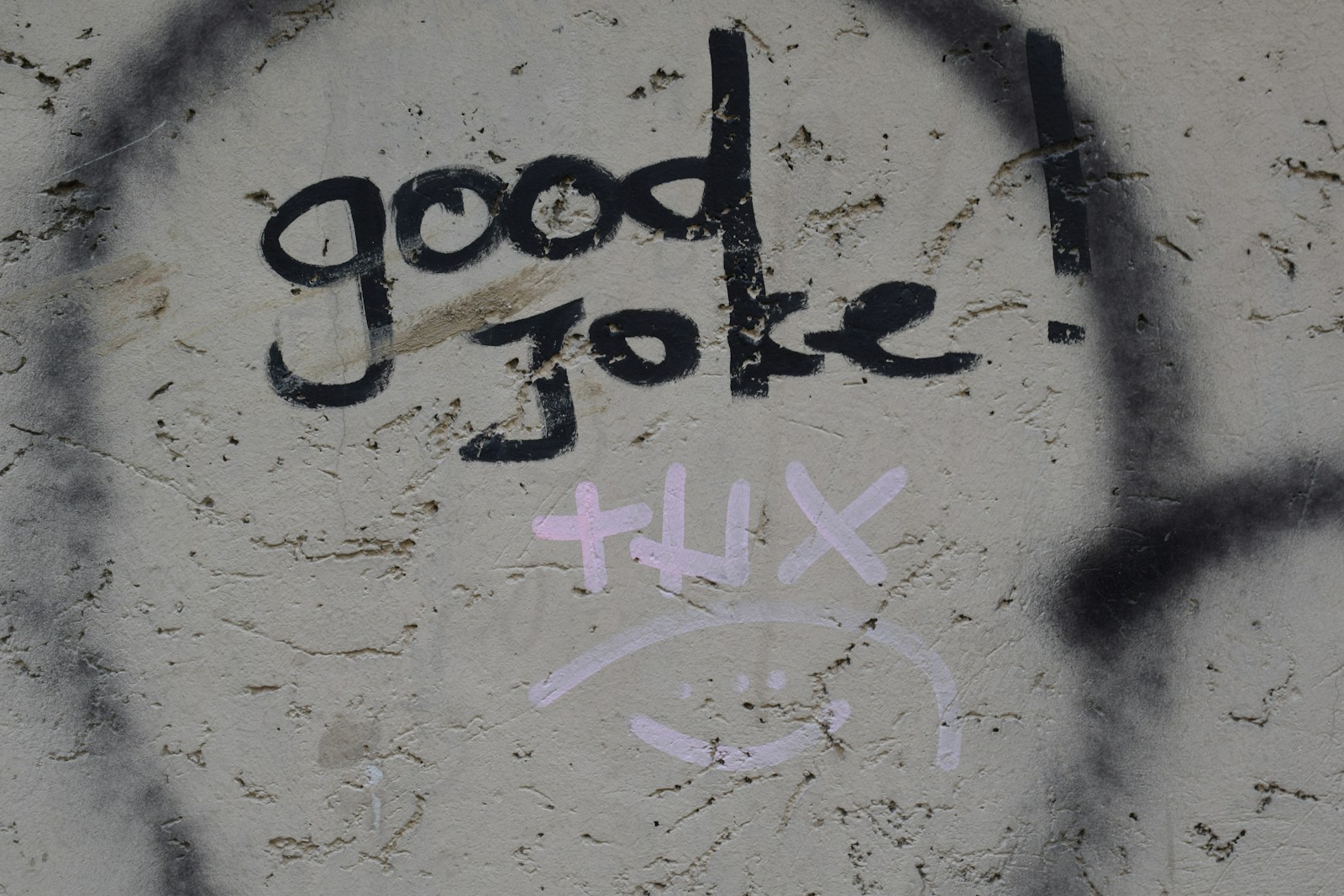
笑话
xiàohuà

joke
In Chinese, '笑话' (xiàohuà) is the translation of the English word 'joke'. It is a term that can be used to describe something that is funny or amusing, typically a story with a punchline. The term can be used to jokingly comment on situations or to tell funny anecdotes or stories. In a sentence, you could use it like '这是个很好笑的笑话' which means 'This is a very funny joke'.
Example sentences using: 笑话
他的笑话总是那么好笑。
Tā de xiàohuà zǒng shì nàme hǎoxiào.

His jokes are always so funny.
The speaker in this sentence admires the humor in someone else's jokes.
我的笑话别人不觉得好笑。
Wǒ de xiàohuà biérén bù juéde hǎoxiào.

People don't find my jokes funny.
The speaker feels that other people do not appreciate his/her sense of humor or jokes.
笑话能帮助我们减轻压力。
Xiàohuà néng bāngzhù wǒmen jiǎnqīng yālì.

Jokes can help us relieve stress.
This sentence talks about the role of humor or jokes in relieving stress.
你最喜欢的笑话是什么?
Nǐ zuì xǐhuan de xiàohuà shì shénme?

What is your favorite joke?
This sentence is typically used when someone wants to know about another person's favorite joke.
这个笑话很老了。
Zhège xiàohuà hěn lǎo le.

This joke is very old.
The speaker considers that the joke has been used excessively or it's outdated.
我有一个好笑话要告诉你。
Wǒ yǒu yīgè hǎoxiào huà yào gàosù nǐ.

I have a funny joke to tell you.
The speaker in this sentence wants to share a joke that they found amusing.
这个笑话我不明白。
Zhège xiàohuà wǒ bù míngbái.

I don't understand this joke.
In this sentence, the speaker claims that they do not understand the meaning or punchline of a particular joke.
别告诉我糟糕的笑话。
Bié gàosù wǒ zāogāo de xiàohuà.

Don't tell me bad jokes.
The speaker in this sentence is requesting not be told jokes that are in poor taste or not funny according to their sense of humor.
我的笑话会让你笑。
Wǒ de xiàohuà huì ràng nǐ xiào.

My jokes will make you laugh.
In this sentence, the speaker is confident about their ability to make others laugh with their jokes.
这个笑话你听过吗?
Zhège xiàohuà nǐ tīngguò ma?

Have you heard this joke?
This sentence is used when someone is about to share a joke and wants to know if the other person has already heard it.